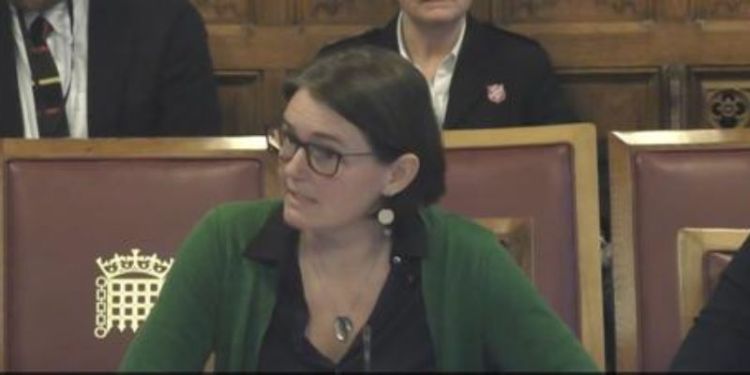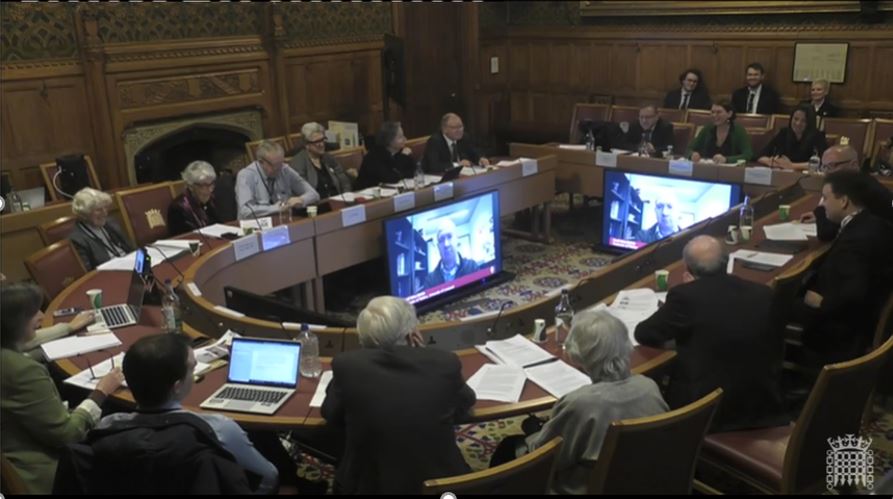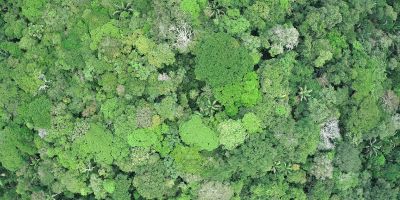Professor Louise Waite advises the House of Lords on the Modern Slavery Act

LSSI Director and Human Geography Professor Louise Waite has given evidence to the House of Lords Modern Slavery Act 2015 Committee, outlining the conflation of modern slavery and immigration.
The Committee is hearing oral evidence from experts regarding how effectively the Modern Slavery Act (MSA) has been working since it came onto the statute books nearly a decade ago.
Professor Waite, Director of Leeds Social Sciences Institute (LSSI), is an expert in modern slavery and immigration policy. She is one of the experts who gave evidence to the House of Lords Modern Slavery Act 2015 Committee.
The political conflation of modern slavery and immigration
The focus of Professor Waite’s session was on the impact of recent immigration legislation on the MSA.
The Act was championed as ‘world-leading’ in 2015, but the Lords were interested in whether the modern slavery protections for victims originally afforded by the MSA are being progressively undermined through new immigration policies.

Professor Waite's oral evidence noted that the strategic conflation of modern slavery and immigration has sprung most notably from the Brexit referendum that put immigration at the top of the political agenda.
Successive governments under Johnson, Truss and Sunak have all demonstrated their continued conviction that drawing a hard line on immigration is a winning strategy.
This anti-immigration stance has bled into the modern slavery sphere and the MSA has become a soft target for this discourse; the MSA is in effect now being neutered by the Government.
Professor Waite outlined how this is happening:
- The Nationality and Borders Act 2022 downgraded the level of support offered to survivors of modern slavery. It has also led to a change in modern slavery evidence thresholds, meaning fewer potential survivors can access protection.
- The Illegal Migration Act 2023 means that the MSA’s protections will no longer be available to migrants arriving irregularly in the UK, regardless of any indicators of modern slavery they might have experienced along the way. This could potentially deny thousands of potential victims of modern slavery protection under the law.
- The Safety of Rwanda (Asylum and Immigration) Bill threatens vulnerable people and violates international law. The Bill, if passed, specifically targets modern slavery survivors.
Professor Waite pointed out that the ‘hostile environment’ for migrants in the UK across the last decade is symptomatic of a broader structural context of exclusionary and racialised violence in the UK that is creating vulnerabilities for many migrants.
The hostile environment includes policies that prevent irregular migrants from accessing housing, healthcare, education and bank accounts, implemented primarily through the 2014 and 2016 Immigration Acts.
This makes precarity and exploitation more likely to occur.
Professor Waite says:
Government policy is, in effect, acting as a driver and facilitator of modern slavery for vulnerable migrants.
She ended her oral evidence with two key recommendations for the government:
- Survivors of modern slavery must have guaranteed access to suitable accommodation, legal advice, compensation, counselling, protection from immigration reprisals (detention/deportation) and subsistence for a reasonable duration of time (one year at least). This must apply equally to UK and non-UK nationals.
- Whilst in the care of the modern slavery protection system, non-UK survivors should have the right to work and study, as these basic measures are imperative to ensuring that dignity remains at the heart of our response to modern slavery.
Professor Waite’s expert evidence to the House of Lords Committee is an exemplar of how LSSI supports academics to produce research that has a significant impact in the policy realm.
Professor Waite is a member of the Social Justice, Cities and Citizenship research cluster in the School of Geography and the Leeds Migration Research Network.




